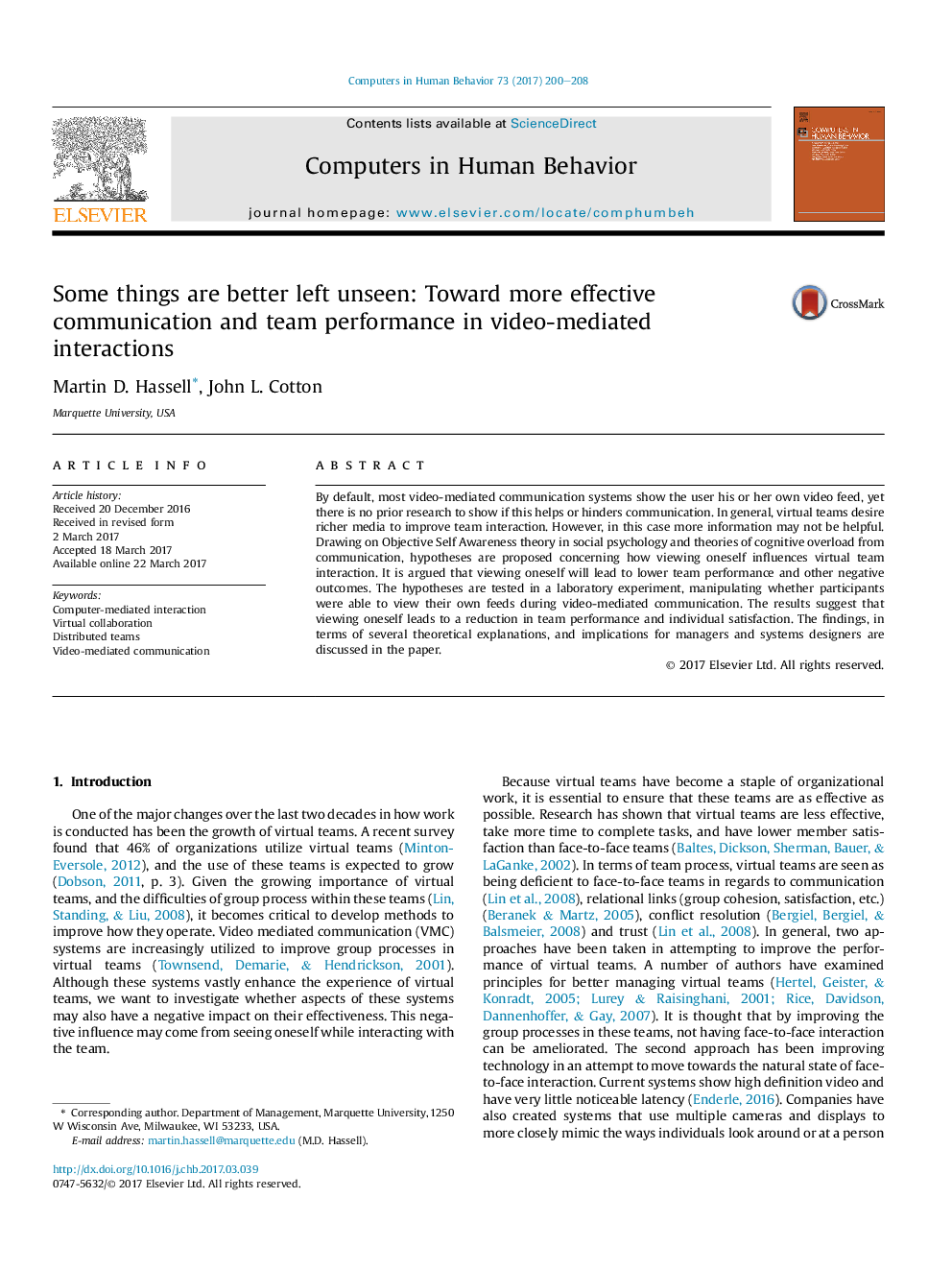ترجمه فارسی عنوان مقاله
بعضی چیزها بهتر می شوند: بدون ارتباط با عملکرد ارتباطی و عملکرد تیمی در تعاملات ویدئویی
عنوان انگلیسی
Some things are better left unseen: Toward more effective communication and team performance in video-mediated interactions
| کد مقاله | سال انتشار | تعداد صفحات مقاله انگلیسی |
|---|---|---|
| 153800 | 2017 | 9 صفحه PDF |
منبع

Publisher : Elsevier - Science Direct (الزویر - ساینس دایرکت)
Journal : Computers in Human Behavior, Volume 73, August 2017, Pages 200-208
ترجمه کلمات کلیدی
تعامل کامپیوتری، همکاری مجازی، تیم های توزیع شده، ارتباطات متصل به ویدئو،
کلمات کلیدی انگلیسی
Computer-mediated interaction; Virtual collaboration; Distributed teams; Video-mediated communication;
ترجمه چکیده
به طور پیش فرض، بیشتر سیستم های ارتباطی با واسطه ویدئویی کاربر را خوراک ویدئویی خود را نشان می دهند، اما هیچ تحقیق قبلی برای نشان دادن این که آیا این کمک می کند یا مانع برقراری ارتباط می شود وجود ندارد. به طور کلی تیم های مجازی رسانه های غنی تر را در جهت بهبود تعامل تیم ها می خواهند. با این حال، در این مورد اطلاعات بیشتر ممکن است مفید باشد. با توجه به نظریه هدف خود در روان شناسی اجتماعی و نظریه های بیش از حد شناختی از ارتباط، فرضیه ها در مورد چگونگی مشاهده خود از تعامل تیم مجازی پیشنهاد می شود. استدلال می شود که مشاهده خود منجر به عملکرد تیم پایین و سایر نتایج منفی خواهد شد. فرضیه ها در یک آزمایش آزمایشگاهی آزمایش می شوند که دستکاری می کنند که آیا شرکت کنندگان توانستند فید های خود را در حین ارتباط ویدئویی مورد استفاده قرار دهند. نتایج نشان می دهد که مشاهده خود منجر به کاهش عملکرد تیم و رضایت فردی می شود. یافته ها، از نظر چندین توضیح نظری و پیامدها برای طراحان مدیران و سیستم ها در مقاله مورد بحث قرار گرفته است.

